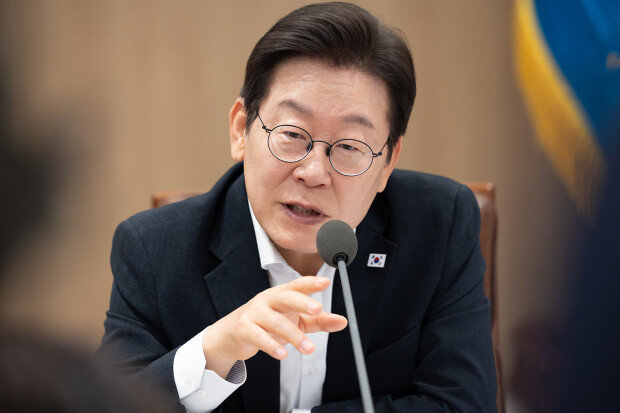
President Lee Jae-myung will visit Japan from Aug. 23 to 24 for his first trip to the country since taking office, where he will hold a summit with Prime Minister Shigeru Ishiba. The meeting, scheduled just before Lee’s talks with U.S. President Donald Trump in Washington on Aug. 25, is seen as a notable diplomatic signal to Japan. It will be the first time a South Korean president has visited Japan ahead of a trip to the United States.
Following their first meeting during the Group of Seven summit in June, Lee and Ishiba are expected to reaffirm their “two-track” approach of quietly managing historical disputes while expanding future-oriented cooperation. By choosing to visit Japan before the United States, Lee is also signaling that strengthening trilateral cooperation among South Korea, the United States, and Japan is a priority in his administration’s pragmatic diplomacy.
Presidential spokesperson Kang Yu-jung said in a August 13 briefing that “the two leaders will strengthen the foundation for future-oriented cooperation and have candid discussions on ways to deepen South Korea-Japan and trilateral cooperation, as well as on regional peace, stability, and other regional and global issues.” On August 23 in Tokyo, Lee will meet Ishiba for talks, followed by a dinner. He is expected to travel directly to Washington on Aug. 24 without returning to Seoul.
Analysts say the early start of shuttle diplomacy, just over two months into Lee’s term, reflects overlapping interests: Lee’s push to strengthen ties with U.S.-led allies early in his presidency and Ishiba’s search for a political breakthrough amid pressure to resign after his party’s defeat in the House of Councillors election. Japan had reportedly requested Lee’s visit after the election, following the collapse of an earlier plan to arrange the trip about 30 days after his inauguration.
Some observers speculate that the summit could produce a “Lee-Ishiba declaration” outlining a vision for bilateral cooperation, similar to the 1998 Kim Dae-jung–Keizo Obuchi declaration. With this year marking the 80th anniversary of Korea’s liberation from Japanese colonial rule, expectations are high that the Aug. 15 Liberation Day speech will include a forward-looking message on bilateral ties. If the meeting yields a concrete cooperation plan, relations between South Korea and Japan could reach a new peak.
The two leaders are also expected to discuss principles for managing historical disputes. This is seen as an effort to address sensitive issues constructively, such as the memorial service for victims of the Sado mine scheduled for this year.
Meanwhile, Kang said the government will not send special envoys to Japan or the United States, as the visits have now been confirmed.
newjin@donga.com


AloJapan.com